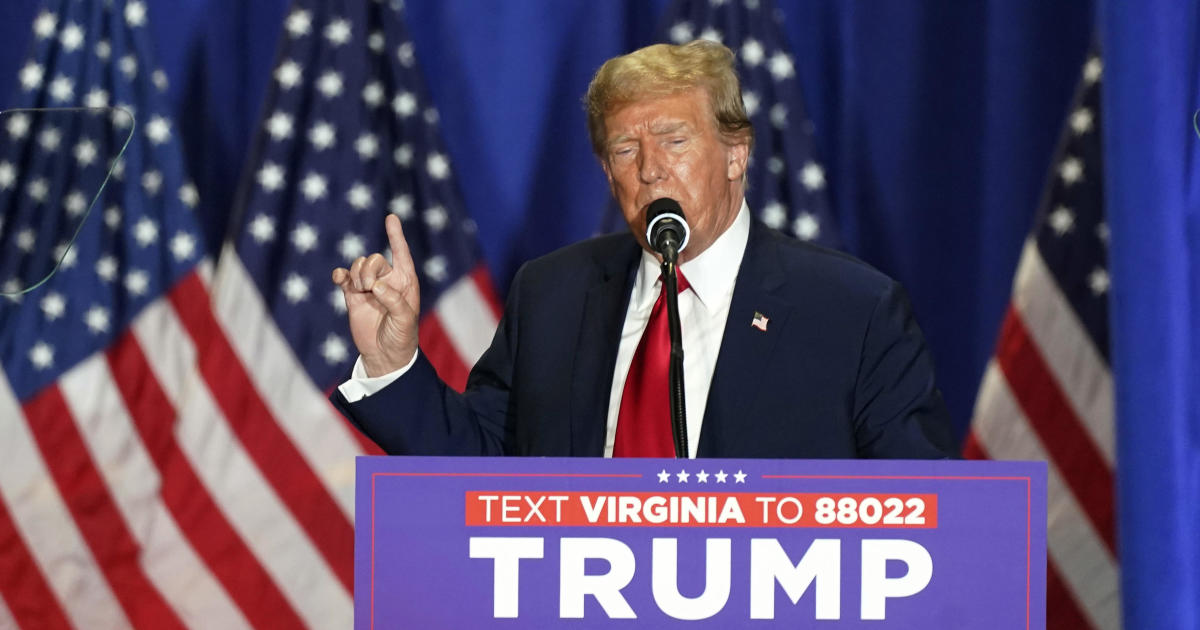Toyota Returns To Growth Strategy
Podcast
Interview: Edmunds.com CEO Jeremy Anwyl talks Toyota with WWJ AutoBeat Reporter Jeff Gilbert.
TOKYO (WWJ/AP) - Toyota laying out some ambitious growth goals, and it's expecting most of that growth to come from emerging markets.
President Akio Toyoda says theri long term goal is to sell ten million vehicles a year by 2015. Toyota sold 8.42 million vehicles in 2010, barely squeaking past General Motors to maintain the top global sales position.
"I want Toyota to make good cars that will make everyone smile,'' Toyoda told reporters in Tokyo.
He said each region will work harder when achieving sales growth to ensure that quality is not compromised. He stressed Toyota was not chasing numbers.
"I was just answering a question,'' he said, when pressed about why he had given the 10 million vehicles number.
Toyota traditionally does not give specific sales goals. Speaking at a Tokyo hotel, Toyoda said the car maker wants to make millions of customers happy, and even--at one point--denied he was giving a numerical sales target. He repeatedly emphasized goals like quality controls, customer satisfaction and solid profits.
Sixty per cent of Toyota's profits come from North America today. The company wants half of its future sales to come from emerging markets.
"They seem to be shifting emphasis a little bit," said Jeremy Anwyl, CEO of Edmunds.com. "They are really acknowledging emerging markets."
Anwyl says Toyota appears to be in a holding pattern in the United States, with no plans to add additional production. While that could create opportunity for domestic companies, Anwyl said it won't be easy.
"You can't step back and say, "That's great news, Toyota's not going to be that agressive in North America,' because plenty of other people are," Anwyl said, in an interview with WWJ AutoBeat Reporter Jeff Gilbert. "This is still going to be an incredibly competitive marketplace."
Toyota, which makes the Prius hybrid and Lexus luxury models, hopes to achieve an annual operating profit of 1 trillion yen ($12 billion) ``as soon as possible,'' even if the yen remains strong and vehicle sales drop by 20 percent, Toyoda said.
The company is forecasting operating profit of 550 billion yen ($6.6 billion) for the fiscal year ending March 31.
Toyoda said the vision was based on what the car maker had learned from its quality problems and the sales hammering from the global financial crisis of 2009.
Analyst Jesse Toprak, vice president of Industry Trends and Insights at TrueCar.com, said the vision was too short on specifics such as model plans and marketing strategies, given the recent gains of rival U.S. automakers as well as South Korea's Hyundai.
"It was a little bit too wishy-washy. We need to see more concrete examples of what needs to be done,'' he said. "There was a lot of wishful thinking.''
Still, Toprak said reaching 10 million in annual vehicles sales was not impossible for Toyota - as long as it came up with more exciting model designs and successfully puts the quality doubts behind it.
Since late 2009, Toyota has announced recall after recall, covering a wide range of defects, including faulty floor mats, sticky gas pedals and glitches in braking software, ballooning to more than 14 million vehicles globally.
The company paid the U.S. government a record $48.8 million in fines for its handling of three recalls. Toyota faces dozens of lawsuits from owners in the U.S., including fatalities allegedly linked to defects.
Last month, U.S. regulators closed their 10-month investigation, clearing Toyota of electronic flaws, and finding mechanical problems covered by the recalls took care of the unintended acceleration cases.
The company has said quality problems emerged as it went through a period of rapid growth.
Toyoda said the automaker's board of directors will be reduced to 11 from 27, but the number of executives overseas will be boosted to 15 from 13, to make for quicker decision-making and to be more responsive to regional needs.
In an unusual personnel move, Toyoda's predecessor Katsuaki Watanabe - seen as a key figure in the go-go growth that predated the quality lapses - will resign from the board of directors as part of the management streamlining. The resignation will be effective after a shareholders' meeting set for June. Past presidents have stayed on longer, and Watanabe's predecessor Fujio Cho remains on the board.
Toyota will also empower its regions, including North America, which will center around development and production of the Camry sedan, to better cater to their needs, he said.
Toyota executives in the United States have said they need to add more style to their lineup. Jeremy Anwyl of Edmunds.com says that strategy could carry some risks.
"The idea about injecting some passion in the brand is a tricky one," he said. "For many consumers, they are buying Toyota because it's not, sort of, the typical brand that you get engaged in. It's the brand you don't have to think about. It's the vehicle that just is. It does what you want it to do."
Even though today's briefing was in Tokyo, much of the material presented was written in English, which Akio Toyoda said was the world's international language.
Toyoda often switched into English during the presentation, using phrases like "smiles from customers around the world,'' and ``our commitment to quality and constant innovation.''
"This vision is about what kind of company we are, our values and the road to what kind of company we want to be,'' Toyoda said.
WWJ AutoBeat Reporter Jeff Gilbert and The Associated Press contributed to this story.



